Recent Blog Posts
What Is Mutual Combat, and How Does It Affect Assault Charges?
 Mutual combat happens when two people willingly agree to fight each other, but it can still lead to assault or battery charges in Illinois. Many people are shocked to learn that agreeing to fight does not prevent criminal consequences.
Mutual combat happens when two people willingly agree to fight each other, but it can still lead to assault or battery charges in Illinois. Many people are shocked to learn that agreeing to fight does not prevent criminal consequences.
In People v. Wright (2025), an Illinois court upheld a battery conviction after a fight outside a lounge, even though both individuals willingly participated in the altercation. The court explained that mutual participation does not automatically prevent criminal liability if unlawful physical contact occurred.
When Does a Drug Case Become a Federal Trafficking Indictment?
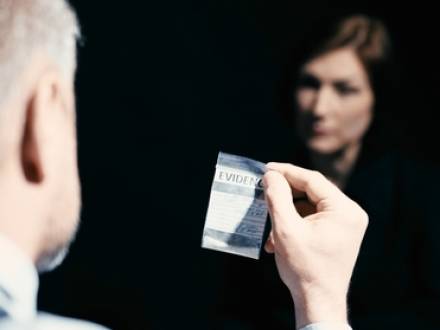 A drug case can become a federal trafficking indictment under several circumstances. Some examples include situations where investigators argue that the activity involves large amounts of drugs, crosses state lines, or is part of an organized operation. Federal prosecutors usually focus on cases they see as more serious or far-reaching than typical state charges.
A drug case can become a federal trafficking indictment under several circumstances. Some examples include situations where investigators argue that the activity involves large amounts of drugs, crosses state lines, or is part of an organized operation. Federal prosecutors usually focus on cases they see as more serious or far-reaching than typical state charges.
According to the Federal Bureau of Prisons, drug offenses account for nearly 44 percent of all federal inmates. That makes them the largest category of federal convictions. If you are facing an investigation in 2026, our Naperville, IL federal crimes defense lawyer helps people take quick action when the stakes are this high.
What Role Does Consent Play in a Sexual Assault Case?
 As of 2026, consent is often the main issue in a sexual assault case, but it is also one of the most misunderstood. Illinois law treats consent as a legal issue, not a personal belief. Small details about timing, words, actions, and the situation can matter a great deal.
As of 2026, consent is often the main issue in a sexual assault case, but it is also one of the most misunderstood. Illinois law treats consent as a legal issue, not a personal belief. Small details about timing, words, actions, and the situation can matter a great deal.
Consent is scrutinized especially closely when alcohol is involved, when the people knew each other already, or when the accounts of what happened do not match. Our Naperville, IL sexual assault defense lawyer can explain how consent is defined and whether it legally existed at the time of the allegation.
How Does Illinois Law Define Consent?
Consent is a key part of deciding whether sexual conduct was legal. Problems often arise because people interpret actions, silence, or past interactions differently. The legal system does not rely on assumptions. Instead, it focuses on what each person understood and communicated at the time of the encounter.
Can I Refuse to Take a Breathalyzer Test in Illinois?
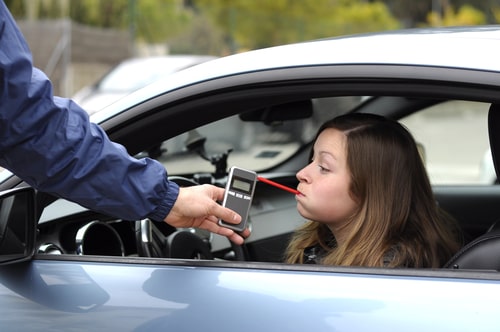 You can refuse to take a breathalyzer test in Illinois, but refusing has immediate consequences, even if you are never convicted of DUI. As of 2026, Illinois still enforces strict implied consent laws that affect your driver’s license when chemical testing is refused.
You can refuse to take a breathalyzer test in Illinois, but refusing has immediate consequences, even if you are never convicted of DUI. As of 2026, Illinois still enforces strict implied consent laws that affect your driver’s license when chemical testing is refused.
This issue comes up often. According to the Illinois Secretary of State’s 2025 DUI Fact Book, law enforcement recorded more than 21,000 DUI arrests statewide in the prior year. With DUI enforcement so common, understanding how breathalyzer refusal works is important. If you are facing this situation, a Naperville, IL DUI defense lawyer can help you understand what refusal really means for your case.
What Does Illinois Law Say About Refusing a Breathalyzer Test?
Illinois is an implied consent state. This means that by driving on Illinois roads, you are considered to have agreed to chemical testing if police lawfully arrest you for DUI.
Can the Police Lie to You about Having Evidence?
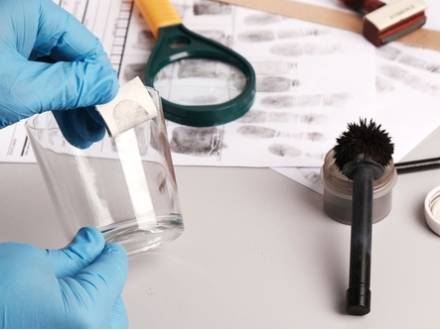 In many situations, police officers are legally allowed to lie about having evidence during a criminal investigation. Their tactics are often used to pressure people into talking or making statements. Knowing how this works is important, especially if you are being questioned. The Naperville, IL criminal defense lawyer at Law Office of Philip R. Nathe can help you understand your rights and protect you during a police investigation.
In many situations, police officers are legally allowed to lie about having evidence during a criminal investigation. Their tactics are often used to pressure people into talking or making statements. Knowing how this works is important, especially if you are being questioned. The Naperville, IL criminal defense lawyer at Law Office of Philip R. Nathe can help you understand your rights and protect you during a police investigation.
What Types of Lies About Evidence Do Police Commonly Use in a Criminal Investigation?
Police deception often sounds believable and confident. Officers are trained to speak in ways that create a sense of pressure and urgency. Common examples include:
-
Claiming they have surveillance video linking you to a crime
-
Saying your fingerprints or DNA were found at the scene
What Happens if My Child Gets Caught With Drugs in Illinois?
 If your child is caught with drugs in Illinois, the case usually enters the juvenile court system. There, the focus is on helping the child correct illegal behavior and avoid future problems. As of 2025, Illinois continues to use this approach for most minors facing drug allegations. Early guidance from a Naperville, IL juvenile drug charge defense lawyer can help you make informed decisions about the next steps.
If your child is caught with drugs in Illinois, the case usually enters the juvenile court system. There, the focus is on helping the child correct illegal behavior and avoid future problems. As of 2025, Illinois continues to use this approach for most minors facing drug allegations. Early guidance from a Naperville, IL juvenile drug charge defense lawyer can help you make informed decisions about the next steps.
Can a Minor Be Charged With Drug Possession in Illinois?
A minor can face drug possession charges under the Illinois Controlled Substances Act. Possession means the child had drugs on their person or in a space they controlled, such as a locker, backpack, car, or bedroom. Most cases remain in juvenile court, where the system prioritizes rehabilitation over punishment through counseling, substance abuse treatment, and educational programs. Only in rare cases involving serious offenses or repeat violations will prosecutors seek to transfer a juvenile case to adult court.
What To Do if You Are Accused of Failing a Drug Test While on Probation
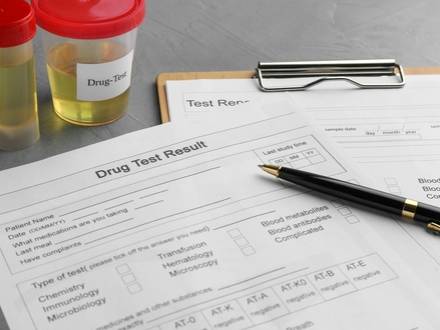 After working hard to meet all your probation requirements, you find out you have been accused of failing a drug test. This is a frustrating but common occurrence. While a failed drug test has to be addressed, it does not always mean that your probation will be revoked. With the right legal help, you can protect your rights and possibly avoid severe penalties. A knowledgeable Naperville, IL probation violation defense lawyer can guide you through the process and fight to keep you out of custody.
After working hard to meet all your probation requirements, you find out you have been accused of failing a drug test. This is a frustrating but common occurrence. While a failed drug test has to be addressed, it does not always mean that your probation will be revoked. With the right legal help, you can protect your rights and possibly avoid severe penalties. A knowledgeable Naperville, IL probation violation defense lawyer can guide you through the process and fight to keep you out of custody.
What Happens if You Fail a Drug Test on Probation in Illinois?
The courts set the rules for probation. These rules often include submitting to random or scheduled drug testing. Under 730 ILCS 5/5-6-3, a positive test may be considered a violation of probation. Depending on your case, your probation officer may issue a warning, request additional testing, or report the violation to the court.
Is It Burglary if I Did Not Take Anything?
 It is a common misconception that burglary only applies when property is stolen, but Illinois law focuses on intent. That means you can still face charges even if nothing was removed from the property. To give yourself the best chance at fighting the charge against you, talk to a Naperville, IL burglary defense lawyer as soon as possible to understand your rights and what steps you should take next.
It is a common misconception that burglary only applies when property is stolen, but Illinois law focuses on intent. That means you can still face charges even if nothing was removed from the property. To give yourself the best chance at fighting the charge against you, talk to a Naperville, IL burglary defense lawyer as soon as possible to understand your rights and what steps you should take next.
What Is Burglary Under Illinois Law?
According to 720 ILCS 5/19-1, burglary occurs when you enter a building, vehicle, trailer, or other structure without permission and intend to commit a felony or theft once inside. The law does not require someone to actually steal something for the charge to apply. The act becomes burglary the moment they enter with criminal intent.
Are Fentanyl-Related Crimes Considered Class X Felonies in Illinois?
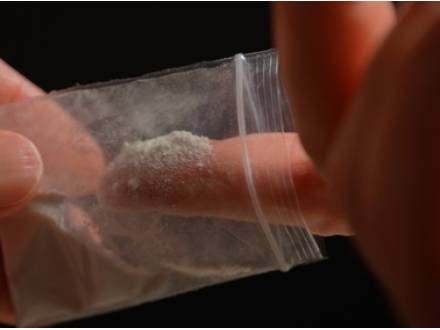 Fentanyl is one of the most powerful and dangerous drugs in the United States. Even a tiny amount can cause an overdose or death. If you are accused of possessing or selling fentanyl, you could face a Class X felony charge, which carries significant penalties. The first step in challenging the charges against you is to hire an experienced Naperville, IL drug crimes defense lawyer. We will review your case, explain what the charges mean, and help you understand your legal options.
Fentanyl is one of the most powerful and dangerous drugs in the United States. Even a tiny amount can cause an overdose or death. If you are accused of possessing or selling fentanyl, you could face a Class X felony charge, which carries significant penalties. The first step in challenging the charges against you is to hire an experienced Naperville, IL drug crimes defense lawyer. We will review your case, explain what the charges mean, and help you understand your legal options.
Why Is Fentanyl Treated So Harshly Under Illinois Law?
Fentanyl is an approved prescription medication. However, the version of it that is commonly related to overdose is made illegally. As of 2025, it is listed as a Schedule II controlled substance under the Illinois Controlled Substances Act. This means it has limited medical uses but a high risk of abuse and addiction.
Can You Be Charged for Sharing Explicit Images Without Consent?
 When you share personal photos through texts or social media, potential legal consequences are probably the last thing you are thinking about. However, if you are accused of sharing explicit images, you could face serious charges. The laws that govern these cases are complex, and there is room to challenge the allegations. Our Naperville, IL internet sex crimes defense lawyer can help. You have the right to fight the charges, and together, we will build a strong defense strategy based on the details of your case.
When you share personal photos through texts or social media, potential legal consequences are probably the last thing you are thinking about. However, if you are accused of sharing explicit images, you could face serious charges. The laws that govern these cases are complex, and there is room to challenge the allegations. Our Naperville, IL internet sex crimes defense lawyer can help. You have the right to fight the charges, and together, we will build a strong defense strategy based on the details of your case.
What Does Illinois Law Say About Non-Consensual Image Sharing?
Illinois law, under 720 ILCS 5/11-23.5, addresses non-consensual dissemination of private sexual images. To be guilty, you must intentionally send, post, or share a sexual image of another person knowing that the person in the image did not agree to share it. The law also says the photo or video must have been taken in private, under circumstances where a reasonable person would expect it to stay private.














